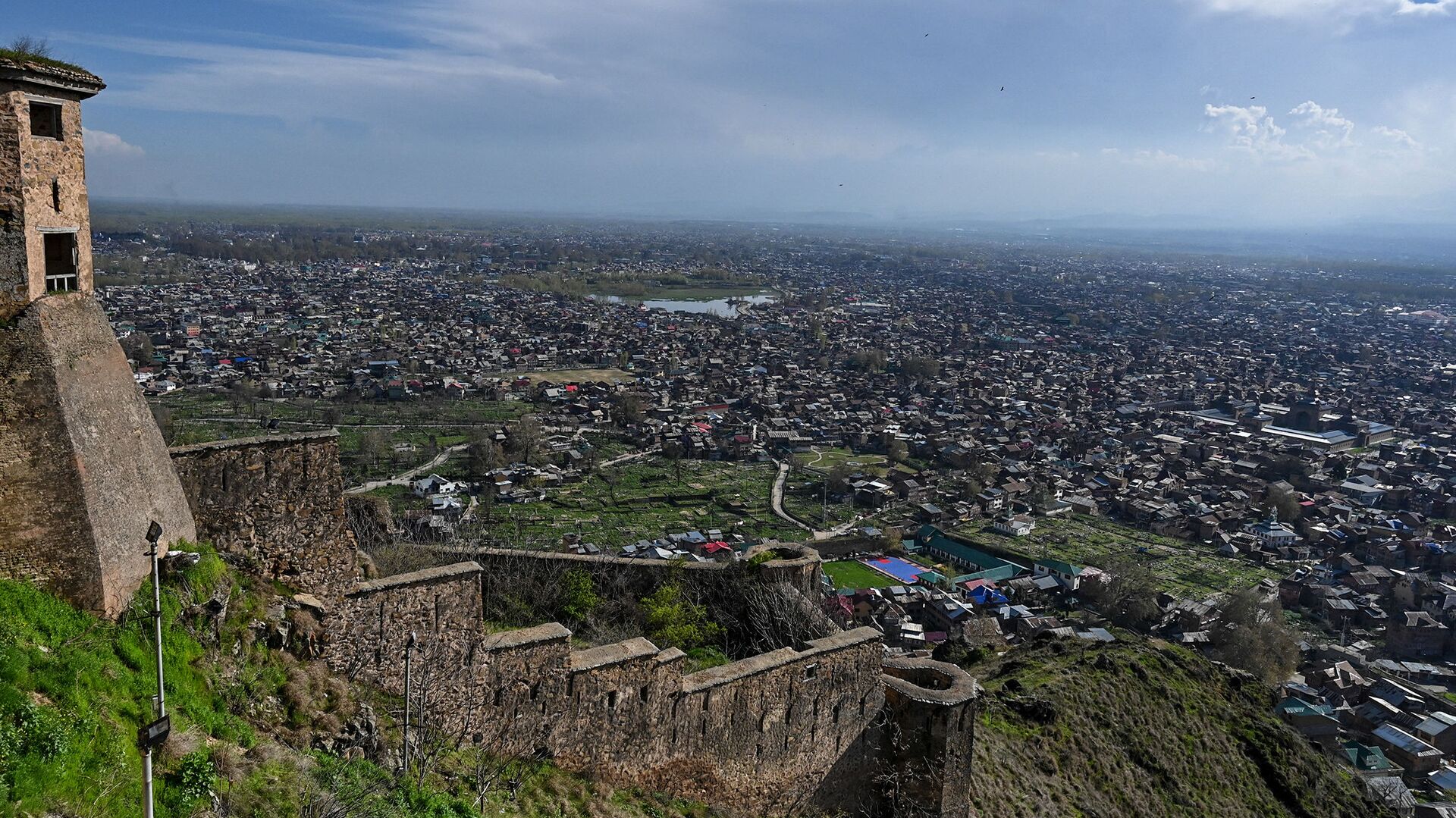'Historic Day': Modi Hails His Kashmir Move as Imran Slams India For 'Destroying Regional Stability'
09:50 GMT 05.08.2021 (Updated: 18:01 GMT 08.12.2022)

© AFP 2023 / TAUSEEF MUSTAFA
Subscribe
To politically integrate the Muslim-majority Jammu and Kashmir with the rest of the country, Prime Minister Narendra Modi’s government in 2019 scrapped a constitutional provision that afforded the erstwhile state semi-autonomous status. India’s move has been rejected by both Pakistan and China, which have competing claims to the entire region.
The abrogation of the semi-autonomous status of Jammu and Kashmir on 5 August, 2019, has brought “unprecedented peace and progress” to the region, Indian Prime Minister Narendra Modi remarked on Thursday.
The remarks by the Indian Prime Minister were made on the second anniversary of Delhi’s decision to void Article 370 of the Indian Constitution and bifurcate the erstwhile state of Jammu and Kashmir into two federally-administered Union Territories (UTs) — Jammu and Kashmir, and Ladakh.
Article 370 had afforded semi-autonomy to the region, which is governed by India but claimed by Pakistan.
A historic day. Two years ago, on this day, the first big step towards a #NewJammuKashmir was taken.
— narendramodi_in (@narendramodi_in) August 5, 2021
Since then, there has been unprecedented peace & progress in the region.
Head to Your Voice section of Volunteer module on NaMo App for informative content, graphics & more!
Spelling out its achievements in Jammu and Kashmir since its 2019 decision, Prime Minister Modi’s app noted that the “terror incidents” in the border region had witnessed a decline in 2020 (244) as compared to 2019 (594).
Further, the Indian government has also sanctioned laws that allow women to buy property in the region, and even those who aren't residents of Jammu and Kashmir UT.
Local political groups such as National Conference (NC) and the Jammu & Kashmir Peoples Democratic Party (J&KPDP) say that the Bharatiya Janata Party (BJP)-led federal government is trying to alter the Muslim-dominated demography of the state through the implementation of some of these laws.
As per the information available on the app, the government has commissioned new medical, management and engineering colleges in the region since the 2019 move, among other “record achievements”.
The claims by Prime Minister Modi contrast with those of Pakistan Prime Minister Imran Khan, who hit out at the Indian government over the 2019 decision, accusing Delhi of "destroying regional stability" through its actions.
I have raised the voice of Kashmiris on the world stage & will continue to do so till Kashmiris are allowed to decide their future according to UNSC resolutions. Pak will continue to fight the Kashmiris' case with conviction & InshaAllah Kashmiris' struggle will succeed.
— Imran Khan (@ImranKhanPTI) August 5, 2021
Like the Indian Kashmir-centric political groups such as NC and the PDP, Pakistan has also rejected the Modi government’s political changes in Jammu and Kashmir and they have been demanding that those moves be rolled back.
“I have raised the voice of Kashmiris on the world stage and will continue to do so till Kashmiris are allowed to decide their future, according to United Nations Security Council (UNSC) resolutions. Pakistan will continue to fight the Kashmiris' case with conviction and Inshaallah (God willing) Kashmiris' struggle will succeed,” stated Khan.
As per UN Security Council Resolution 47, adopted in 1948, both India and Pakistan must withdraw their forces from the region and then hold a plebiscite to decide its political status.
While India has consistently rejected “outside interference” in Kashmir, calling it an “internal matter”, even Pakistan has been accused of increasing its military presence on the Kashmiri territory occupied by it during the invasion by Islamabad-backed militias in 1947.

